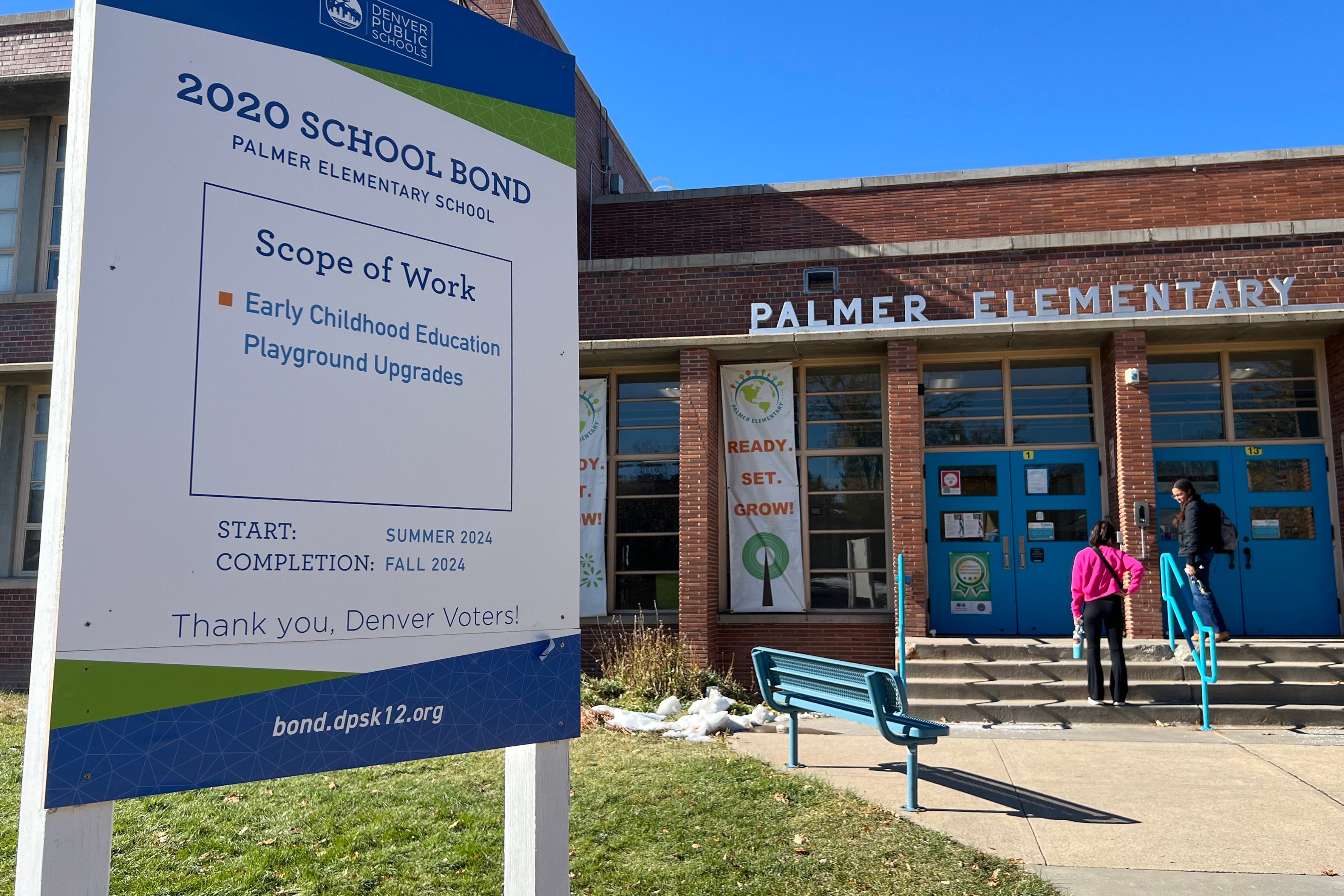Sign up for Chalkbeat Colorado’s free daily newsletter to get the latest reporting from us, plus curated news from other Colorado outlets, delivered to your inbox.
Denver Public Schools has spent $22.6 million in voter-approved bond dollars over the past four years on schools that district officials are now considering closing or downsizing, according to information obtained by Chalkbeat in an open records request.
That dollar amount only includes construction projects unique to the 10 school buildings that would be closed or partially closed if the Denver school board votes yes Thursday on a proposal by Superintendent Alex Marrero to shutter seven schools and shrink three more due to declining enrollment. It does not include districtwide projects.
Of the 10 schools, five are located in standalone buildings that would become vacant. About $4.6 million of the $22.6 million in bond money was spent at those five schools. The rest was spent on shared buildings that would continue to serve students. It’s unclear how much was spent in the parts of the buildings occupied by schools that could close.
The funding came from a $795 million bond measure approved by Denver voters in 2020. Bonds are like loans taken out by school districts to fund one-time construction projects. They are funded by local property taxes, which is why they need voter approval.
In a statement, Denver Public Schools said it doesn’t plan to sell any school buildings that are closed. Instead, officials would work with the community to find future uses for the buildings.
Many of the renovations funded by the bond dollars were to upgrade mechanical systems and make the buildings accessible to people with disabilities — both of which would be necessary for any future reuse of the buildings, the district said in its statement.
Marrero’s recommendation calls for closing Castro Elementary, Columbian Elementary, Denver School of Innovation and Sustainable Design, International Academy of Denver at Harrington, Palmer Elementary, Schmitt Elementary, and West Middle School. DSISD and West Middle School currently share buildings with other schools.
Marrero also proposed removing some grades from Kunsmiller Creative Arts Academy, Dora Moore ECE-8 School, and Denver Center for International Studies. Those buildings would stay open but could host fewer students if the proposal is approved.
The proposed closures are meant to address declining enrollment in some Denver schools. For example, the enrollment at Castro Elementary has gone from 357 students in 2019-20 to 237 students this school year, which puts the building at 38% full, according to the district.
Students, parents, and teachers have pushed back on the proposal since it was announced earlier this month. At public meetings, several have questioned why Denver Public Schools would shut down schools when it just spent voter-approved tax dollars to renovate them.
“The playground we just built on this building we’re about to close. The carpet we just put in this room when we’re about to close. Why are we spending money on that?” Palmer fifth grade teacher Alice Martin asked district officials last week. She was pointing at the carpet in the library, where teachers were gathered for a meeting about the proposal.
At West Middle School, students spoke about the school’s new soccer field. At Schmitt Elementary, a parent asked about the recently installed elevator. Teachers at several schools noted that their buildings have air conditioning, which some other Denver schools still lack.
Board member Xóchitl “Sochi” Gaytán told Schmitt parents and teachers that as long as students are in the buildings, even for the time being, it’s important that the spaces are nice.
“It’s important the children walking into this building are walking into clean, safe, and beautiful environments to have that quality learning,” she said.
The district has budgeted another $5.3 million in 2020 bond money still to be spent at the 10 school buildings, according to data from the open records request. If the school board votes to close or partially close those schools, a district spokesperson said critical maintenance projects would be completed but other projects may not.
District officials have said Denver Public Schools needs to close schools because it doesn’t have enough money to provide robust programming at schools with low enrollment. Denver funds its schools per student, and fewer students means less funding for small schools.
Parents have also asked why the district can’t use bond money to keep small schools open, especially since Denver voters approved another bond measure earlier this month. At $975 million, the 2024 bond was bigger than the $795 million measure approved in 2020 that is funding the current projects.
“I voted in support of the bond,” Palmer Elementary parent Stef Flores told school board members Monday at a public comment session. “I want the district to be well-funded. Please use this windfall to rebudget and employ creative solutions.”
But bond money can’t be used to operate schools. Bond dollars can only be used to pay for construction costs, including renovations, repairs, and building brand new schools.
The 2024 bond money will be used to install air conditioning at the 29 Denver schools that don’t have it; upgrade school safety systems, high school athletic facilities, and middle and high school theater spaces; build career and technical education classrooms; buy more school buses; and more.
The money will also be used to build a new elementary school in far northeast Denver, one of the only areas of the city that is seeing an increase in student population.
Melanie Asmar is the bureau chief for Chalkbeat Colorado. Contact Melanie at masmar@chalkbeat.org.






